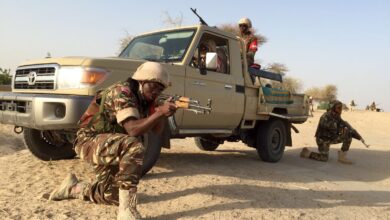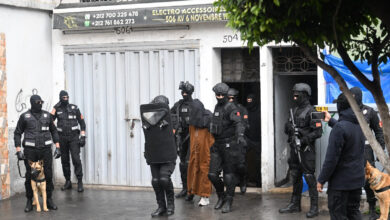Weekend attacks in central Nigeria kill more than 200, governor says
More than 200 people were killed in violence against farming communities last weekend in central Nigeria’s Plateau state, according to a speech by the governor published on Wednesday, June 27.
Simon Lalong told President Muhammadu Buhari after a closed-door meeting on Tuesday night that the clashes, blamed on suspected cattle herders, had left “the painful loss of over 200 people,” AFP reported.
On Monday, Nigeria’s Vanguard news reported that at least 120 people had been killed in a series of coordinated attacks on thre villages in the area. Police have said that 86 people were killed in what they suspect are attacks by cattle herders.
According to some reports, the fighting began on Thursday when farmers attacked and killed five herders, prompting a retaliatory attack on Saturday.
A dawn-to-dusk curfew has been imposed by the government in Plateau state in an attempt to curb the violence.
On Wednesday, Vanguard reported residents of one village, Dorowa Babuje, as saying that another 15 people were killed in raids. One resident said many were in hiding from security forces, and that a number of churches in the village had been destroyed. Residents in other parts of the Barkin Ladi area said they were forced by security forces to bury the dead in secret. A spokesperson for the Operation Safe Haven military task force denied the claims.
The conflict between central Nigeria’s herders and farmers is stoked by ethnic rivalries and access to land. Within Nigeria some commentators have sought to blame language or religious differences for the violence, as most of the Fulani herders involved in the attacks are Muslim, and most farmers are Christians from the Berom and other ethnic groups.
More than 1,000 people have been killed in such violence in Nigeria’s Middle Belt this year, eclipsing the 200 or so killed by Boko Haram.
Lalong said “criminal elements” were exacerbating tensions and that the latest attacks were carried out with “sophisticated weapons” that were “reflective of a terrorist invasion,” AFP reported on Wednesday.
“It therefore demands a justified response like that which was undertaken to address the Boko Haram insurgency,” he added.












